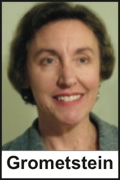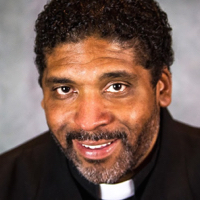Rascals case in brief
In the beginning, in 1989, more than 90 children at the Little Rascals Day Care Center in Edenton, North Carolina, accused a total of 20 adults with 429 instances of sexual abuse over a three-year period. It may have all begun with one parent’s complaint about punishment given her child.
Among the alleged perpetrators: the sheriff and mayor. But prosecutors would charge only Robin Byrum, Darlene Harris, Elizabeth “Betsy” Kelly, Robert “Bob” Kelly, Willard Scott Privott, Shelley Stone and Dawn Wilson – the Edenton 7.
Along with sodomy and beatings, allegations included a baby killed with a handgun, a child being hung upside down from a tree and being set on fire and countless other fantastic incidents involving spaceships, hot air balloons, pirate ships and trained sharks.
By the time prosecutors dropped the last charges in 1997, Little Rascals had become North Carolina’s longest and most costly criminal trial. Prosecutors kept defendants jailed in hopes at least one would turn against their supposed co-conspirators. Remarkably, none did. Another shameful record: Five defendants had to wait longer to face their accusers in court than anyone else in North Carolina history.
Between 1991 and 1997, Ofra Bikel produced three extraordinary episodes on the Little Rascals case for the PBS series “Frontline.” Although “Innocence Lost” did not deter prosecutors, it exposed their tactics and fostered nationwide skepticism and dismay.
With each passing year, the absurdity of the Little Rascals charges has become more obvious. But no admission of error has ever come from prosecutors, police, interviewers or parents. This site is devoted to the issues raised by this case.
On Facebook
Click for earlier Facebook posts archived on this site
Click to go to
Today’s random selection from the Little Rascals Day Care archives….
Click for earlier Facebook posts archived on this site
Click to go to
Today’s random selection from the Little Rascals Day Care archives….
One thing led to another…. boy, did it ever!
 Nov. 16, 2012
Nov. 16, 2012
“In North America in the 1980s, the moral panic about organized child abuse arose in a context that included the following scares:
- “a moral panic about satanic activity;
- “a scare about missing and murdered children;
- “great public anxiety about incest, redefined as child sexual abuse during the 1970s;
- “a wave of disputed custody cases in which women accused their former husbands of sexually abusing children during court-ordered visitations;
- “self-help books by women claiming to be ‘survivors’ of incest and ritual abuse;
- “therapists’ claims that many of their adult women patients suffered from multiple-personality disorder as a result of severe childhood sexual and ritual abuse.
“Of particular importance were claims that society was in denial about widespread child sexual abuse…. Thus, claims about organized child abuse by caregivers were made in a context of claims about similar issues, and the effect of claims in one panic was to reinforce claims in another.”
– From “Wrongful Conviction and the Moral Panic About Organized Child Abuse: National and International Perspectives” by Randall Grometstein (2005)
Which candidate cares about wrongful convictions?

naacpnc.org
Rev. William Barber
April 8, 2016
“North Carolina’s attorney general (Roy Cooper) should set up a group to investigate claims of wrongful convictions to prevent more innocent people from being in prison, the head of the state NAACP said Thursday.
“The Rev. William Barber also called on Gov. Pat McCrory to establish a task force to recommend ways to strengthen protections against wrongful convictions….”
“Cooper’s office said a meeting was held with Barber and representatives of the NAACP: ‘We look forward to working with them to address systemic issues in the criminal justice system.” Cooper also wants more money for N.C. Innocence Inquiry Commission, which has been involved in releasing eight innocent men.
“McCrory’s office didn’t… respond to Barber’s comments….”
– From “NAACP: Attorney General should review wrongful convictions” by Martha Waggoner of the Associated Press (March 24) (text cache)
The latest addition to the long list of questionable North Carolina convictions comes from Gaston County (thank you, Elizabeth Leland of the Charlotte Observer). Least surprising sentence in Leland’s series: “The prosecutors who tried the case declined to be interviewed.”
![]()
Remembering when ‘sketchiest of evidence or none at all’ was plenty

Levine
Jan. 8, 2018
“Because [this movement] was about sex and children, hysteria was not far behind. Before long, an industry of feminist and Christian therapists and self-help writers were claiming that virtually every behavioral quirk or emotional trouble could be traced to sexual abuse, even if – especially if – the alleged victim did not remember it. ‘If you think you were abused and your life shows the symptoms, then you were,’ wrote poet Ellen Bass and journalist Laura Davis in their massive bestseller The Courage to Heal (1988). The symptom checklists in it and similar books include everything from arthritis to feeling ugly. Bass’s book launched a battery of unscientific ‘therapeutic’ and forensic interviewing techniques to extract false and ‘recovered’ memories of sexual depredation. …
“A new crusade marched under the banner ‘Believe the Children.’ With the sketchiest of evidence or none at all, child protective agencies removed kids from their parents. Credulous juries sent day-care workers to prison on charges of ‘satanic ritual abuse.’ Adults denounced their aging parents, guilty of nothing more than imperfect love, as sadistic rapists. It took only one accusation to ruin a person’s life. Bus drivers, babysitters, divorcing fathers, and boyfriends at the wrong end of a grudge lost jobs, families, and reputations with one accusation, one newspaper item. In its review of exonerations from 1989 to 2012, the National Registry of Exonerations reported that among convictions for crimes that never occurred, over half involved child sexual abuse: ‘Two-thirds of these cases were generated in a wave of child sexual abuse hysteria that swept the country three decades ago.”
– From “Will Feminism’s Past Mistakes Haunt #MeToo?” (Dec. 8) by Judith Levine in Boston Review
![]()
One less platform for ritual-abuse fantasizers
 April 27, 2012
April 27, 2012
Friday news roundup:
■ Darkness to Light, the Charleston-based nonprofit with the goal “End Child Abuse,” has responded to my request to disassociate itself from one of the last promoters of the ritual-abuse day-care hoax. This is from Erika Rowell, program coordinator for D2L: “After taking a long look at the Survivorship website we have decided to remove it from our resource list.”
■ The North Carolina Supreme Court’s latest release on petitions allowed and denied included no ruling on Junior Chandler’s appeal. Next possible release date: June 14.
■ The New York Times reports a jarring increase in the number of retractions published in scientific journals. The Times focuses on heavyweights such as Science and the New England Journal of Medicine, but I have to wonder whether – OK, hope that – this phenomenon might one day extend to the likes of the Journal of Child Sexual Abuse, the Journal of Psychohistory and Treating Abuse Today, all of which failed to apply professional skepticism to the abuse fantasies of their contributors.











0 CommentsComment on Facebook